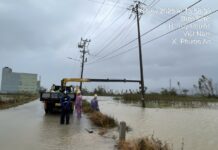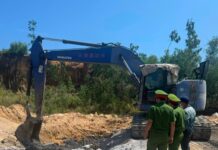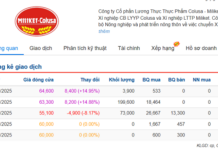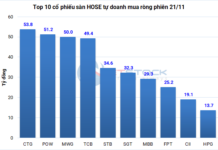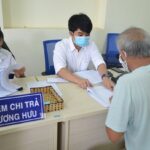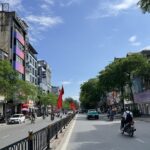The Ministry of Labour, Invalids, and Social Affairs has received feedback from voters in Can Tho city regarding the city’s achievements in terms of voluntary health insurance and social insurance participation among farmer association members. While the city has met and exceeded its targets, with the majority of members having health insurance and over 5% participating in voluntary social insurance, there are still thousands of farmers and workers who remain uninsured.
This situation could potentially burden the city’s social welfare budget in the future and negatively impact the livelihoods of these uninsured individuals during their retirement years.
The primary reason for the lack of participation among this group is their occupation as mostly self-employed or agricultural workers, which tends to provide low and unstable incomes, making it challenging for them to afford social insurance contributions.
Currently, the government provides financial support for social insurance contributions, with a 30% subsidy for the poor, 25% for near-poor households, and 10% for other participants. However, with the upcoming 30% increase in the base salary from July 1, 2024, the contribution rates will also increase, further impacting the already meager incomes of farmers and self-employed workers.
To address this concern, voters in Can Tho city propose increasing the level of financial support to encourage greater participation in social insurance among farmers and self-employed workers, thereby contributing to the long-term social welfare goals of the city.
In response to this feedback, the Ministry of Labour, Invalids, and Social Affairs acknowledges that the government has been providing financial support for voluntary social insurance participants since January 1, 2018, as stipulated in Decree No. 134/2015/NĐ-CP, dated December 29, 2015. Additionally, they encourage organizations, businesses, and individuals to provide further support for those participating in voluntary social insurance.
Furthermore, the 12th Central Committee issued Resolution No. 28-NQ/TW on May 23, 2018, on reforming social insurance policies, which includes providing appropriate support from the state budget for farmers, the poor, low-income individuals, and those in the informal sector to participate in social insurance, thereby expanding social security coverage.
On June 29, 2024, at the 7th session of the 15th National Assembly, the Social Insurance Law No. 41/2024/QH15 was passed, which will come into effect on July 1, 2025. To implement this new law, the Prime Minister issued Decision No. 717/QĐ-TTg on July 27, 2024, assigning the Ministry of Labour, Invalids, and Social Affairs to take the lead in developing a decree on voluntary social insurance.
The Ministry of Labour, Invalids, and Social Affairs pledges to take the voters’ proposal into consideration during the process of drafting the decree, which is expected to be submitted to the government in 2025.

Additionally, to enhance the skills and employability of workers, especially those in rural areas, the government and the Prime Minister have introduced various supportive policies and directives. These include providing training and skill enhancement programs to meet the demands of the labor market and increase income-earning opportunities, ultimately contributing to higher social insurance participation rates.
Some notable policies include: providing training support for elementary-level and under-3-month courses for rural laborers (Decision No. 46/2015/QĐ-TTg dated September 28, 2015); offering training support for associate and bachelor’s degree levels for rural laborers, ethnic minorities, and poor and near-poor households under the National Target Programs for the 2021-2025 period; implementing tuition fee exemptions and reductions according to the Government’s Decree No. 81/2021/NĐ-CP dated August 27, 2021; and providing training support for associate and bachelor’s degree levels for youth who have completed their military or public security service, as well as for volunteers who have completed tasks under economic and social development programs (Government Decree No. 61/2015/NĐ-CP dated July 9, 2015)
Furthermore, to ensure that rural laborers have accessible and flexible learning opportunities, the Minister of Labour, Invalids, and Social Affairs has introduced open and flexible training formats, such as distance learning and self-study with guidance (Circular No. 33/2018), as well as a combination of work and study (Circular No. 31/2017)
In alignment with the Secretariat’s Directive No. 37-CT/TW dated July 10, 2024, on renewing vocational training for rural laborers to meet the requirements of industrialization and modernization in agriculture and rural areas, the Prime Minister has assigned the Ministry of Labour, Invalids, and Social Affairs to collaborate with the Ministry of Agriculture and Rural Development and other relevant ministries, branches, and agencies to review and integrate the contents of the project “Training and career transition for agricultural laborers in the Mekong Delta region until 2030” into the project “Renewing and improving the quality of vocational training in rural areas.”
Additionally, the Prime Minister has directed a review and adjustment of the guidance on renewing vocational training for rural laborers.
At the end of September 2024, the Ministry of Labour, Invalids, and Social Affairs submitted a report to the Prime Minister for approval of the project “Renewing and improving the quality of vocational training in rural areas.”
Who Can Retire Early Without a Pension Penalty?
Retirement often comes with a reduction in pension benefits for early retirees. However, are there any exceptions to this rule? In certain scenarios, early retirees may retain their full pension entitlements or even receive additional benefits. Understanding these exceptions is crucial for those considering early retirement, as it could significantly impact their financial planning and security during their golden years.
“National Assembly Approves Land Use Plan Adjustment for 2021-2030, with a Vision Towards 2050”
The government has recently passed Resolution 149/NQ-CP on September 23, 2024, regarding the proposal to adjust the land-use planning for the period of 2021–2030, with a vision extending until 2050.












